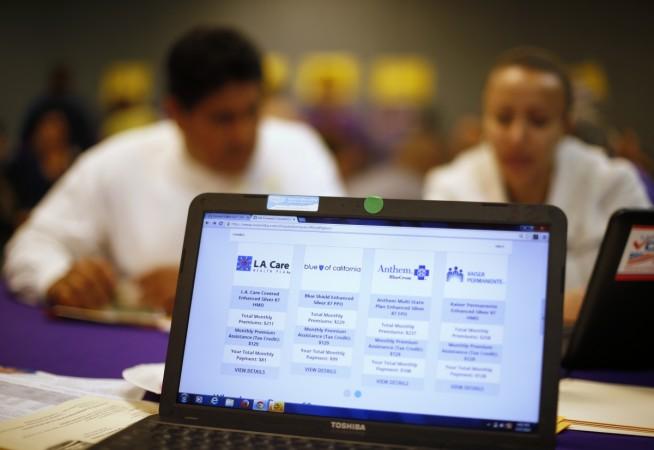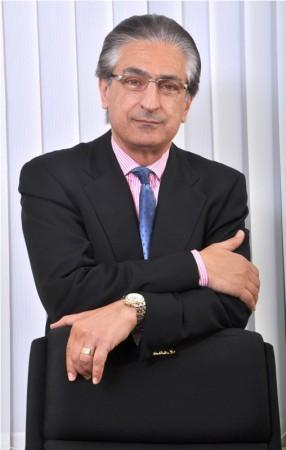
It was in 1999 that Tony Mira founded Ajuba International, a global provider of healthcare revenue cycle outsourcing services to healthcare systems, hospitals, academic medical centers, durable medical equipment suppliers, and billing and receivables management companies in the United States. In 2001, he set up the Indian subsidiary of Ajuba and in 2005, he founded MiraMed Global Services, an end-to-end customizable solution to healthcare organizations. Today, MiraMed is one of the largest healthcare BPOs in the United States, employing nearly 2,000 healthcare professionals worldwide, serving more than 700 hospitals and 6,000 providers while processing nearly $3 billion in payments annually. In an exclusive chat with International Business Times, Tony Mira, President and CEO at Anesthesia Business Consultants; President and CEO at MiraMed Global Services, Inc; and CEO at Ajuba International LLC alks about President-Elect Donald Trump and the future of the healthcare industry.
International Business Times: How will Donald Trump's win affect the Indian ITeS space?
President-Elect Donald Trump's impending presidency certainly raises many questions both in the ITeS space and beyond, including the future of the H-1B visa program and taxes on businesses that have international operations. As to be expected with any new president, especially one who does not have prior experience in politics or government, Mr. Trump continues to learn more and more each day about the impact his decisions will make on the global stage. While I cannot definitively predict the impact a decision may have, I do hope that he keeps in mind the importance of the United States' relationship with India, a relationship he values. I also hope that he takes into account the effect such decisions may have on domestic businesses that rely so heavily on the skills of an international workforce.
IBT: Visas have been a major concern for Indians. What is your take on this?
It goes without saying that the H-1B visa program is an essential visa for many American businesses, including both in the healthcare space and technology spaces. While Mr. Trump's exact and current stance on H-1B visas is unclear, what is clear is that many American businesses require this program to sustain their businesses. I believe the H-1B visa program will be in tact during a Trump presidency; however, I do not expect it to expand.
IBT: Do you think Obamacare will be scrapped?
While President-Elect Trump has expressed a desire to repeal all of the Affordable Care Act—or as is commonly known as, Obamacare—recent interviews with him and subsequent analysis have lead us to believe that a complete repeal would be difficult. However, if repeal did occur, many of the aspects of the Affordable Care Act that Americans liked—allowing children to stay on their parents' insurance until age 26, and prohibiting insurers from denying coverage for pre-existing conditions—would be retained, according to Mr. Trump. That all being said, I, along with most Americans, do believe the Affordable Care Act has room for improvement, so that all Americans can fully realize the benefit of the healthcare coverage. It is my sincere hope that President-Elect Trump can achieve that goal.

IBT: What are some of the challenges for the global healthcare industry over the next five years?
One of the greatest challenges for the global healthcare industry is cyber security. Cyber security took center stage during the recent U.S. elections and we only expect this issue to become more prominent as the healthcare industry progresses. Recently, the issue of ransomware has become more prominent. "Ransomware" attacks are malicious intrusions into information systems that encrypt the victim's sensitive data and demand payment in exchange for a key to unlock the data. Earlier this year, a hospital in California paid hackers about $17,000 to restore its electronic medical record system. Unfortunately, we only expect this to continue as the data and information collected about people becomes even more valuable to the delivery of care.
IBT: What are some of the areas that India needs to improve on in the healthcare space?
India should implement a standardized process for the delivery of healthcare services. Currently, there is no standard and uniform protocol for the patient to travel throughout the healthcare system, from setting up appointments to receiving care to final payment of statements. India would benefit from standardizing this process so programs, like electronic medical records and other data-gathering tools, could be put in place. This would drastically elevate the delivery of care.
IBT: What's next for Ajuba Solutions?
Ajuba Solutions is looking to expand its client base to other English-speaking countries, like Canada, the United Kingdom, and Australia. We are also looking to expand our technology and data analytics footprint in this industry. In so doing, our presence in India will only become more pronounced.











